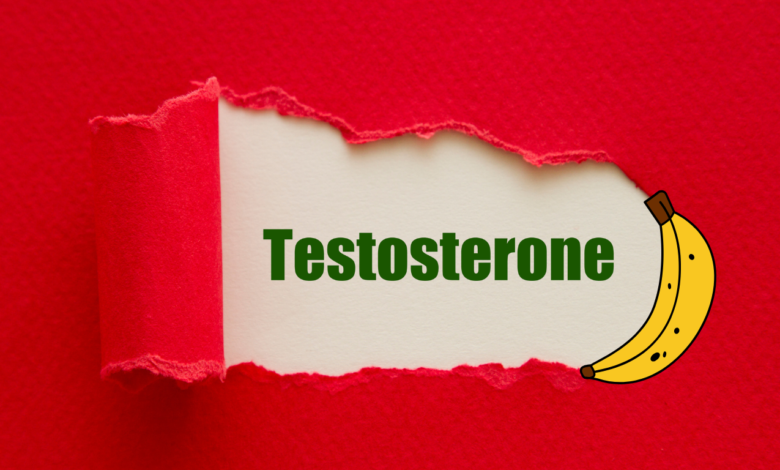Top 10 Benefits of High Testosterone Level

Benefits of High Testosterone: Testosterone is a hormone primarily produced in men’s testicles and women’s ovaries and adrenal glands. This hormone is essential for male growth and the development of masculine characteristics. For women, testosterone levels are significantly lower. Approximately 30 times more testosterone is produced during adolescence and early adulthood. After early adulthood, levels are normal to decrease annually by a small amount. After 30 years of age, your body may undergo a one percent decline.
Testosterone plays a key role in your:
- muscle mass and bones
- facial and pubic hair
- body’s development of deeper voices
- sex drive
- mood and quality of life
- verbal memory and thinking ability
Consult your doctor if you are concerned about low testosterone levels. Because low testosterone is a natural consequence of aging, symptoms such as decreased muscle mass, increased body fat, and erectile dysfunction may indicate other conditions.
If your doctor has diagnosed you with low testosterone or hypogonadism or requires testosterone replacement therapy for other conditions, you may wish to increase your testosterone levels. If your testosterone levels are normal, increasing them may not result in any additional benefits. Only individuals with low testosterone levels have been studied for the increased benefits listed below.
EXPLORE THE CONTENTS
Benefits of High Testosterone
Healthy Heart and Blood Rate
A healthy heart pumps blood throughout the body, delivering oxygen-rich blood to muscles and organs for optimal performance. Testosterone promotes the production of red blood cells in the bone marrow. Low levels of testosterone are associated with numerous cardiovascular risks.
However, can testosterone replacement therapy help treat cardiovascular disease? The results of the research are mixed. In small studies conducted at the beginning of the 21st century, men with heart disease who received testosterone therapy showed only slight improvements. Some individuals increased their walking distance by 33%. According to a separate study, hormone therapy only widened healthy arteries and did not affect angina pain.
Men whose testosterone levels returned to normal were 24 percent less likely to have a heart attack and 36 percent less likely to have a stroke, according to a more recent, larger study of 83,000 men.
More Muscle, Less Fat
Testosterone is responsible for muscular growth. Leaner body mass aids in weight management and increases vitality. Studies indicate that treatment can decrease fat mass and increase muscle size and strength in men with low testosterone. Some men reported a change in lean body mass but no strength increase. You will most likely experience the greatest benefits if you combine testosterone therapy with resistance training and exercise.
Stronger bones
Testosterone has a significant impact on bone mineral density. As men age and testosterone levels decline, bone density declines. This increases the risk of bone fragility and osteoporosis. Strong bones aid in the support of muscles and internal organs, which can enhance athletic performance.
As long as the dosage of testosterone is high enough, research indicates that it increases bone density. In clinical studies on the effect of testosterone on bone density, spinal and hip bone density increased. Another study of females undergoing gender transition found that testosterone increased bone mineral density. However, it is unknown whether testosterone can help reduce fracture risk.
Improved spatial, mathematical, or verbal memory
Alzheimer’s disease is less prevalent in men with higher ratios of total testosterone, according to research. There is also strong evidence of a correlation between testosterone and cognitive abilities, such as verbal memory and processing speed. Men between the ages of 34 and 70 who receive testosterone treatment demonstrate improved spatial memory.
Better libido
Naturally, testosterone levels rise in response to sexual arousal and activity. Typically, men with higher testosterone levels engage in more sexual activity. For libido and erectile function, older men require increased testosterone levels. However, it is essential to note that erectile dysfunction is frequently caused by other conditions or medications, not low testosterone levels.
Studies demonstrate that testosterone replacement therapy can improve sexual health and performance. It also demonstrates that there is a maximum level of testosterone before no response is observed. For men without hypogonadism, increasing testosterone may not affect libido.
Improved mood
Life quality is negatively correlated with low testosterone levels. Low testosterone levels are characterized by depression, fatigue, and irritability. Some research indicates, however, that this may only apply to men with hypogonadism. Men whose testosterone levels naturally declined with age did not exhibit increased depression.
The mood-altering effects of testosterone replacement therapy can vary. Men with hypogonadism reported improved mood and well-being and decreased fatigue and irritability. According to research, this treatment may also be effective as an antidepressant.
Better Cognitive Function
Testosterone may also play a role in cognitive function, including memory and verbal fluency. Some research suggests that maintaining healthy testosterone levels may help reduce the risk of cognitive decline in aging individuals. While more research is needed in this area, the link between testosterone and brain health is a promising area of study.
Regulation of Body Fat
Optimal testosterone levels can help regulate body fat distribution, reducing fat accumulation and increasing muscle mass. This can be especially beneficial for those trying to manage their weight or improve their body composition.
Improved Sleep Quality
Testosterone levels can influence sleep patterns. The right amount of testosterone can improve sleep quality, rest, and recovery. On the other hand, sleep disturbances can negatively affect testosterone production, creating a bidirectional relationship between testosterone and sleep.
Increased Motivation and Confidence
Testosterone is often linked to increased motivation and self-confidence. Individuals with optimal testosterone levels may experience higher levels of assertiveness and drive to achieve their goals, both in personal and professional aspects of life.
What is the risk of testosterone Therapy?
Gels, skin patches, and intramuscular injections are available for prescription testosterone treatment. Each has potential adverse effects. Patches can cause skin irritation. Injections intramuscularly may induce mood swings. If you use the gel, you should not share it with others.
Possible side effects of testosterone therapy include:
- increased acne
- fluid retention
- increased urination
- breast enlargement
- decreased testicular size
- decreased sperm count
- increased aggressive behaviors
Testosterone treatment is not advised for men with prostate or breast cancer. Additionally, testosterone therapy may worsen sleep apnea in older people.
Read More: Discover Effective Methods to Boost Testosterone Naturally and Improve Vitality
Considering testosterone replacement therapy
You do not require treatment if your levels are within the normal range. Low-testosterone men are the primary beneficiaries of testosterone replacement therapy. Purchase of testosterone without a prescription is prohibited. Consult your physician if you suspect you have low testosterone levels. A blood test can measure testosterone levels and aid in the diagnosis of underlying conditions.
Physicians and researchers hold differing opinions regarding the efficacy of testosterone replacement therapy. Most agree that study results for most conditions are inconsistent.
A healthy diet and regular exercise are required for good health and maximum testosterone treatment effectiveness. Continuing care and monitoring are advised.
Natural Ways to Boost Your Testosterone Level
Certain foods, vitamins, and herbs can increase testosterone levels. Consult your physician if you are concerned about low testosterone levels. These alternative and natural treatments have not been proven superior or more effective than conventional testosterone therapy. Some may also interact with medications you are currently taking and cause unwanted side effects.
| Herbs | Vitamins and supplements | Foods |
| Malaysian ginseng | vitamin D | garlic |
| puncturevine | dehydroepiandrosterone (DHEA) | tuna |
| ashwagandha | L-arginine | egg yolks |
| pine bark extract | zinc | oysters |
| Yohimbe | ||
| saw palmetto |
FAQs
1. Can women benefit from optimal testosterone levels?
Yes, women can benefit from maintaining optimal testosterone levels. Testosterone is essential for various physiological functions in men and women, including sexual health, bone density, and overall well-being.
2. Are there natural ways to boost testosterone levels?
Some lifestyle changes can help boost testosterone levels, such as regular exercise, a balanced diet, adequate sleep, and stress management.
3. Can low testosterone levels cause depression?
Low testosterone levels have been associated with an increased risk of depression in some individuals. However, depression is a complex condition with multiple factors contributing to its development.
4. Is testosterone replacement therapy safe?
Testosterone replacement therapy can be safe and effective for individuals with clinically low testosterone levels when administered under the guidance of a healthcare professional. However, like any medical treatment, it may have potential side effects, and its suitability should be determined case-by-case.
5. At what age does testosterone production decline?
Testosterone production typically declines in men around 30 and gradually decreases with age. However, individual variations exist, and some men may experience a more rapid decline than others.







